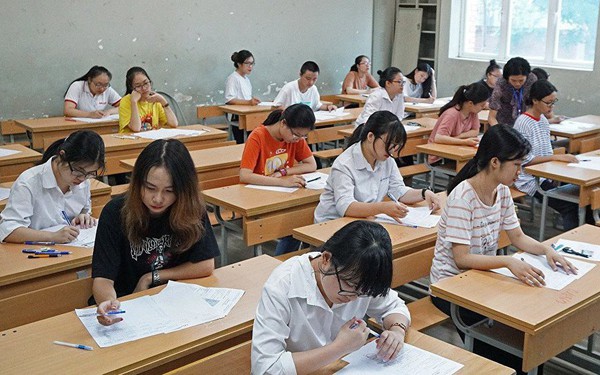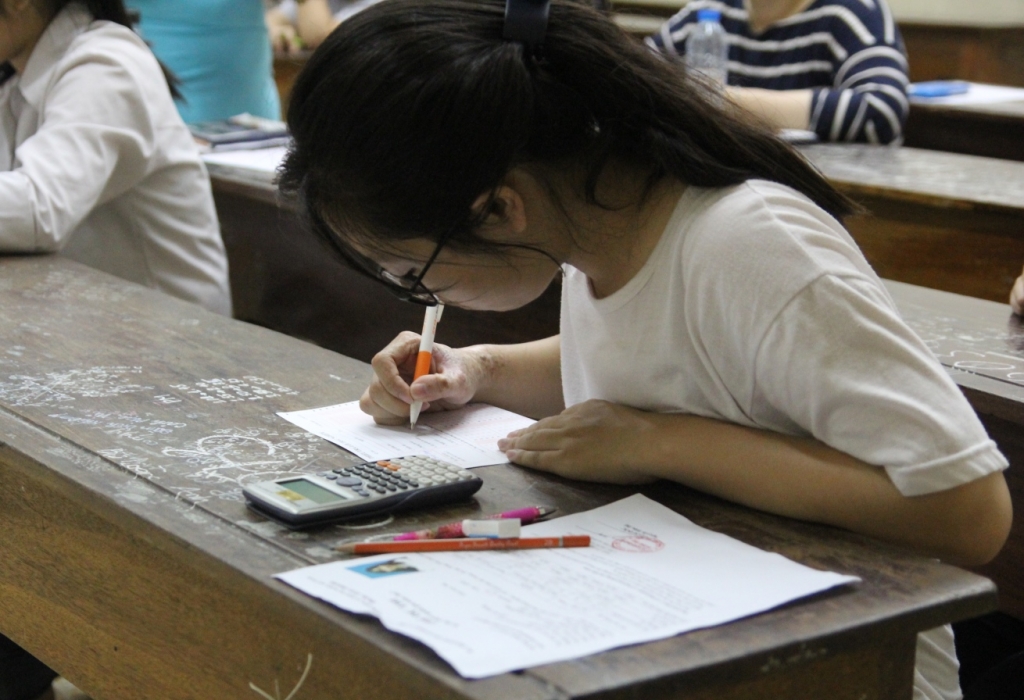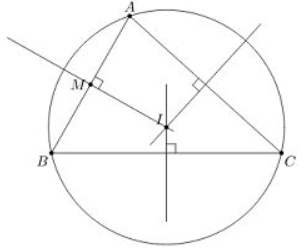FUTURE TENSES - CÁC THÌ TƯƠNG LAI
I. Future Simple - Thì tương lai đơn.
1. Form.
|
(+) |
S + will/ shall + O. |
|
(–) |
S + won’t/ shan’t + V + O. |
|
(?) |
Will/ Shall + S + V + O ? |
* “will” sử dụng cho tất cả các ngôi: “shall” chỉ dùng cho “I” và “we”.
2. Uses.
Thì tương lai đơn diễn tả những sự việc, hành động sẽ xảy ra trong tương lai.
a. Diễn tả 1 quyết định đưa ra tại thời điểm nói không có kế hoạch từ trước.
Ví dụ: Did you phone An? - Oh, I forgot. I’ll phone him tomorrow.
It’s a bit cold here. I’ll go and shut the door.
I will never let you go.
b. Diễn tả 1 lời hứa, 1 lời đe dọa, mong đợi, ước ao, yêu cầu, đề nghị.
Ví dụ: I promise I’ll never be late for school.
We hope you will be able to come.
That box looks heavy. I will carry it for you.
I won’t tell anyone what you said.
c. Diễn tả quan điểm, ý kiến, dự báo chung về tuong lai.
Cách dùng này thường đi với các động từ:
believe, think, be sure, know, doubt, be afraid, hope, expect,.....
Ví dụ: We believe that our team will win.
I’m afraid that he won’t come.
I don’t think this plan will come off.
d. Diễn tả 1 đề nghị muốn giúp người khác, muốn người khác giúp mình hoặc rủ ai làm gì.
Shall I .... ? Đề nghị giúp ngườ khác.
Shall we ....? Rủ ai cùng làm gì.
Will you .... ? Dùng đầu câu hoặc cuối câu để đề nghị ai làm gì.
Ví dụ: Shall I take you to work?
Shall we take more photos?
Will you help me with this exercise?
Make me a cup of tea, will you?
§ Chú ý:
Thì tương lai đơn không sử dụng trong các mệnh đề thời gian.
Mệnh đề thời gian thường bắt đầu bằng các liên từ thời gian:
|
– When |
|
|
– Until |
|
|
– Till |
|
|
– As soon as |
+ S + V |
|
– Before |
|
|
– After |
|
|
– By the time |
|
II. Near Future - Tương lai gần.
1. Form.
|
|
+ going to + V (dự định) (1) |
|
S + am/ is/ are |
|
|
|
+ V_ing (sắp sửa) (2) |
2. Uses.
a. Thì này được dùng để diễn tả 1 hành động sắp xảy ra hoặc có một dự định sắp tới.
Tuy nhiên đối vói những động từ chỉ chuyển động ta sử dụng cấu trúc (2).
Ví dụ: My father is retiring.
Where are you going to spend your holiday? - I’m going to stay at home.
b. Thì này đi sau câu mệnh lệnh để diễn tả các hiện tượng sắp xảy ra có dấu hiệu từ trước.
Ví dụ: Look! The clouds are too dark. It’s going to rain.
§Phân biệt giữa tương lai đơn và tương lai gần.
* Ta dùng will khi ta quyết định làm điều gì đó vào lúc nói, chưa có quyết định từ trước.
Ví dụ: Tom: My computer has broken down. Can you repair it for me?
Dad: Okay, but I can’t do it now. I’ll repair it tomorrow.
* Ta dùng be going to khi ta quyết định làm điều gì đó rồi.
Ví dụ: Mom: Can you repair Tom’s computer? It has broken.
Dad: I know. He told me. I’m going to repair it tomorrow.
III. Future Continuous - Thì tương lai tiếp diễn.
1. Form.
|
(+) |
S + will/ shall + be + V_ing + O. |
|
(–) |
S + won’t/ shan’t + be + V_ing + O. |
|
(?) |
Will/ Shall + S + be + V_ing + O ? |
2. Uses.
a. Diễn tả hành động sự việc sẽ đang diễn ra tại 1 thời điểm xác định trong tương lai.
Cách dùng này thường đi kèm với những cụm trạng từ thời gian mang tính xác định.
|
At this time |
tomorrow |
|
at + .... o’clock |
next + week/ month/ year... |
|
at + .... a.m/ p.m |
this Tuesday/ Wednesday..... |
Ví dụ: At this time tomorrow, I will be lying on the beach.
At 8 p.m next Monday, we will be celebrating our win.
b. Diễn tả 2 hành động sẽ đang xảy ra song song ở 1 thời điểm xác định trong tương lai.
Cách dùng này thường đi với các liên từ thời gian như: while, whereas, meanwhile.
Ví dụ: Tomorrow noon, I will be cooking the dinner while my mom will be washing the fruit.
Tonight, he will be playing the piano, meanwhile his wife will be serving the dinner.
c. Diễn tả 1 hành động đang xảy ra ở tương lai thì 1 hành động khác xen vào.
Ví dụ: I will be studying when you return this evening.
They you be dancing when we call tomorrow.
d. Diễn tả hành động kéo dài trong 1 quãng thời gian ở tương lai.
Ví dụ: Next week I won’t be able to meet you because I will be staying in Paris.
They will be sitting the final exam in the next 5 days, so don’t disturb their study.
IV. Future Perfect - Thì tương lai hoàn thành.
1. Form.
|
(+) |
S + will + have + VPII + O. |
|
(–) |
S + won’t + have + VPII+ O. |
|
(?) |
Will + S + have + VPII + O ? |
2. Uses.
a. Diễn tả 1 hành động sẽ xảy ra hoàn tất trước 1 thời điểm cho trước trong tương lai, hoặc trước 1 hành động khác trong tương lai. ( thường kết hợp với: before, by, by the time, ....)
Ví dụ: By this time next month, I will have arrived at Noi Bai Airport.
By the time you get here, we’ll have started the concert.
b. Diễn tả 1 hành động xảy ra từ quá khứ kéo dài cho tới 1 thời điểm trng tương lai.
Cách dùng này bắt buộc phải sử dụng kết hợp với 1 cụm trạng ngữ chỉ thời gian (thường bắt đầu bằng giới từ “for”)
Ví dụ: This May, I will have studied English for 5 years.
By the time you arrive next week, we will have lived here for 12 months.
IV. Present Perfect Continuous - Thì hiện tại hoàn thành tiếp diễn.
1. Form.
|
(+) |
S + will have + been V_ing + O. |
|
(–) |
S + won’t have + been V_ing + O. |
|
(?) |
Will + S + have + been V_ing + O ? |
2. Uses.
Diễn tả 1 hành động bắt đầu từ quá khứ và kéo dài đến 1 thời điểm cho trước ở tương lai.
Các cụm từ chỉ thời gian đi kèm là:
+ By ... for (+ khoảng thời gian)
+ By then
+ By the time
Ví dụ: By December, we’ll have been living in this house for 10 years.
My May 3rd, I’ll have been working for this company for 16 years
EXERCISES
A If a word or phrase in the bold is correct, put a tick (Ö). If it is incorrect, rewrite it correctly on the line, including all possibilities.
|
1 |
The university is going to expand for billions of years. ..................................................... |
|
2 |
Look out! You will hit the car in front! ..................................................... |
|
3 |
I’m going to do the washing-up tonight, if you like. ..................................................... |
|
4 |
Do you think that, in the future, people will live to be hundreds of years old? ..................................................... |
|
5 |
Will I carry some of those bags for you, or can you manage? ..................................................... |
|
6 |
I know! I’m going to have a barbecue on my birthday! ..................................................... |
|
7 |
Are you going to just hold this door open for me for a minute? Thanks a lot. ..................................................... |
|
8 |
We’ve decided we will try that new restaurant after the play tomorrow night. ..................................................... |
|
9 |
We’re going to fly to Jamaica in the summer. ..................................................... |
|
10 |
Shall we invite Tony and Tim round tonight? ..................................................... |
|
11 |
Are we going to invite Tom and Tony round tonight? ..................................................... |
|
12 |
Will you go to Jason’s party next week? ..................................................... |
B Circle the correct word or phrase. If both options are correct, circle both.
|
1 |
We aren’t / We’re not going to miss the train, are we? |
|
2 |
I think I’m going to do / I’m doing really badly in the English test tomorrow. |
|
3 |
Josh is going to sing / is singing a song in the school talent con test next week. |
|
4 |
I’m going to buy / buying a big yacht if I can when I’m older. |
|
5 |
Sports Day is going to be / being held on the last day of term. |
|
6 |
Does / Will the concert last more than two hours. |
|
7 |
Are they going to broadcast / Will they broadcast the music awards live tomorrow night? |
|
8 |
Do they broadcast / Are they broadcasting the music awards live tomorrow night? |
|
9 |
According to the timetable, the train to Oxford leaves / is leaving at 10.15. |
|
10 |
Does the restaurant open / Is the restaurant opening next Sunday? |
C Write a word or short phrase in each gap.
At the end of this month, I’ll (1) ....................................................... working on my physics project for about six weeks., but I’ve got a lot to do before I hand it in. I’ll (2) ..................................................... spending the whole day in the physics laboratory next Saturday doing experiment, and in fact, I
(3) .................................................. playing football the weekend after either because I’ve got to go back
to the lab then, too. I guess I’ll (4) ..................................................... lots of similar projects when I’m at
university, so it’s good practice. Thinking about it, when I leave university in about four years, I will (5) ..................................................... studying physics for over thirteen years, so I should be quite good at it by then!
D Complete using the future perfect or future perfect continuous of the verb in brackets.
|
1 |
I ..................................................... (cook) dinner by the time you get home. |
|
2 |
In a few minutes, I ..................................................... (wait) here for Cate for over two hours. Where can he be? |
|
3 |
We’ll be halfway through the sponsored swim in one hour so we ..................................................... (swim) for forty- eight hours non-stop by then. |
|
4 |
They ..................................................... (not / finish) painting the house by the time we gat back. |
|
5 |
If she’s still on the phone at 8 o’clock, ..................................................... (Jan / talk) to Mark for over two hours . |
|
6 |
At six o’clock this evening, we ..................................................... (not / climb) for five hours but for seven hours. |
|
7 |
This time next month, you ..................................................... (probably / pass) your driving test. |
|
8 |
..................................................... (you / do) all your homework by bedtime? |
|
9 |
Tomorrow ..................................................... (Elaine / work) on the project for ten days. |
|
10 |
We ..................................................... (probably / not / leave) by the time you get home. |
E Complete each second sentence using the word given, so that it has a similar meaning to the first sentence. Write between two and five words in each gap.
|
1 |
We’ll get home and we’ll have something to eat. got We’ll have something to eat ............................................................................................... home. |
|
2 |
I’ll finish marking the exams and then I’ll tell you your results. soon I’ll tell you your results ............................................................................................... marking the exams. |
|
3 |
You’ll be travelling across the Sahara next weeks so remember to wear lots of sunscreen! while Remember to wear lots of sunscreen ............................................................................................... across the Sahara next week. |
|
4 |
They’ll show Titan at the cinema and they’ll release the DVD. before They won’t release the DVD ............................................................................................... at the cinema. |
|
5 |
My science exam starts at ten tomorrow morning. taking At ten past ten tomorrow ............................................................................................... my science exam. |
|
6 |
Let’s watch the space documentary before we have supper. watched Let’s have supper ............................................................................................... the space documentary. |
|
7 |
I’ll send out all the invitations before lunchtime. have By lunchtime, ............................................................................................... all the invitations. |
|
8 |
Do some revision and then I’ll give you rest. until I won’t give you a rest ............................................................................................... some revision. |
|
9 |
When you visit us, we’ll have moved into our new house. by we’ll have moved into our new house ............................................................................................... you visit us. |
|
10 |
We’ll get some more information and then we’ll make a decision. once Let’s make a decision ............................................................................................... got some more information. |
ANSWER KEY
|
A
B
C
D
|
E
|







